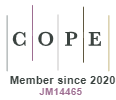The extradition process and it’s limits in Brazil: Outline in accordance with the understanding of the Supreme Court
DOI:
https://doi.org/10.5585/rtj.v7i2.559Keywords:
Extradition, Brazil, Limits.Abstract
The extradition is an age-old institution and also an important mechanism for guaranteeing human rights, national sovereignty and combating impunity. This article deals with the main limits of the extradition process in the Brazilian legal system, using bibliographical revision and documentary analysis. Extradition in Brazil is considered mixed since it requires the joint action of the Executive Branch and the Judiciary while also respecting the Belgian system of limited contention. It is understood that the limits to the extradition process are important to ensure respect for the human rights of the foreign , for example by prohibiting extradition for political crimes or by an atypical act. On the other hand, to ensure the functioning of the system human rights restrictions may occur such as limiting the amount of defense that can be claimed by the foreign.






